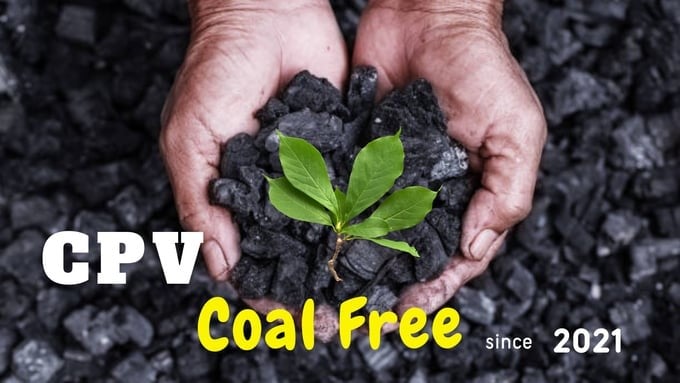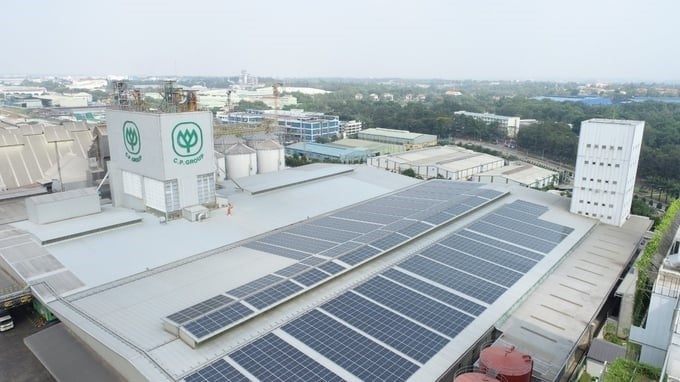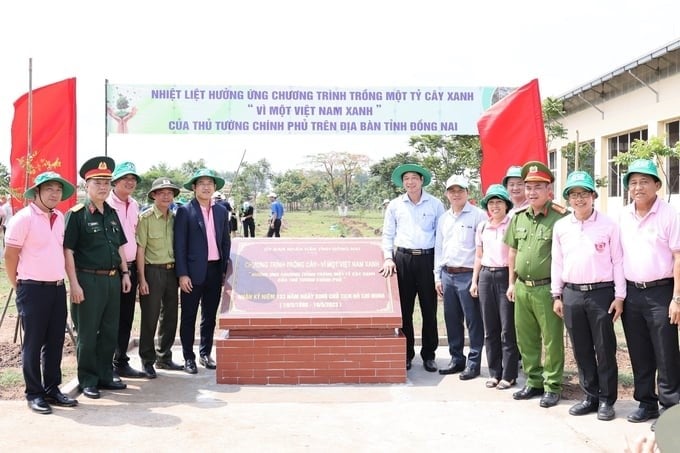November 28, 2025 | 03:44 GMT +7
November 28, 2025 | 03:44 GMT +7
Hotline: 0913.378.918
November 28, 2025 | 03:44 GMT +7
Hotline: 0913.378.918

C.P. Vietnam has stopped using coal since 2021.
In order to join hands to respond to global climate change, Vietnam has made strong commitments towards the goal of net zero emissions by 2050 at the 2021 United Nations Climate Change Conference (COP26).
C.P. Group in general and C.P. Vietnam Livestock Corporation (CPV) in particular always emphasize the importance of environmental protection during production and business processes. Provide strategies and goals committed to minimizing negative impacts on the environment throughout the production and supply chain, aiming to be a zero-emission business by 2050 (Net Zero 2050).
Mr. Pawalit Ua Amornwanit, General Director of C.P. Vietnam, said that "CPV is clearly aware of the importance of the environment and the reasonable use of natural resources throughout its business process. As a business operating in the fields of industry, agriculture, and food, CPV always strives towards sustainable agriculture, becoming a green business by building a modern, smart, and eco-friendly production and business model. Be steadfast in building a sustainable development strategy with solid steps, ensuring harmony between economic growth goals that must go hand-in-hand with environmental and social benefits."

The solar energy system is installed on the roof of a CPV's factory.
CPV introduces effective energy use policies to reduce greenhouse gas emissions, including increasing the rate of use of renewable energy such as biomass energy, biogas energy, and solar energy; applying innovative technology in the production process; and following circular economy principles, thereby contributing to promoting green and sustainable development. As of now, renewable energy has contributed 38% of the energy used in business activities, and CPV is proud to achieve the goal of stopping using coal (100% coal-free) since 2021.
In addition, with the wish to optimize production and save resources, CPV chooses equipment and machinery with low energy consumption and high production efficiency to reduce fuel consumption and waste generation during the production process. On the other hand, innovate technology by using automatic production systems and robots, and streamline production processes and time to reduce energy consumption in factories (smart factories).

Collective leadership of the CPV and leaders of Dong Nai province in the tree planting program in Dong Nai.
Along with internal corporate greening activities, CPV also always focuses on the community through many environmental and social projects. In particular, in order to contribute to balancing emissions, restoring the ecosystem, and supporting Vietnam's goal of planting 1 billion trees, CPV has been implementing the project "CPV – Green Vietnam Journey 2021-2025” with the goal of planting and caring for 1.5 million trees in Vietnamese provinces and cities affected by climate change, natural disasters, floods, etc.
These are important first steps on the challenging Net Zero journey ahead. Through sustainable development efforts, C.P. Vietnam hopes to join hands with the Government on the Net Zero journey for a green, sustainable future and convey positive messages to the business community.
Translated by Thu Huyen
/2025/11/27/3830-1-152901_403.jpg)
(VAN) Dong Nai is developing its key crop areas, expanding planting area codes, and applying high technology to increase the value of agricultural products, aiming at a green and sustainable agriculture.

(VAN) Tay Ninh’s livestock sector is undergoing a major transformation, applying high-tech, closed-loop circular models to build sustainable value chains.
/2025/11/26/3627-4-082628_818.jpg)
(VAN) From a small café on the red basalt highlands, Le Van Hoang started a business with clean coffee, building Enjoi Coffee into a symbol of organic agriculture in the Lam Dong plateau.
/2025/11/25/0045-1-135246_13.jpg)
(VAN) Ca Mau is researching a model of sea-encroaching embankments combined with viaducts and logistics service zones, aiming both to prevent erosion and create land funds for marine economic development.

(VAN) The information was shared at the seminar 'Urban Agriculture - Solutions for Developing Green Spaces,' organized by the Kinh te & Do thi Newspaper and the Biotechnology Center of Ho Chi Minh City.
/2025/11/19/4141-2-132831_216.jpg)
(VAN) One of Japfa's outstanding solutions is implementing digital transformation and artificial intelligence (AI) to optimize operations, enhance productivity, and advance sustainable development.
/2025/11/19/4847-1-093540_448.jpg)
(VAN) The Gia Lai Provincial People’s Committee had a working session with the delegation of the U.S. Department of Agriculture, the State of Idaho, and representatives of the State's leading enterprises.